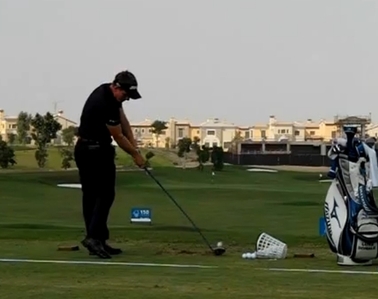 What makes one elite golfer lower their golf score average faster than another? Why does one golfer perform better under pressure than another? Why do some professional golfers reach the pinnacle of their golf mountain whilst others live in the shadows at the bottom? We'll look at how the way you practice your golf skills can go a long way in determining whether you become more successful in your golf performances over the long term. You’ll learn what the research shows about a highly specific type of practice that has the potential to make you improve faster than other method. 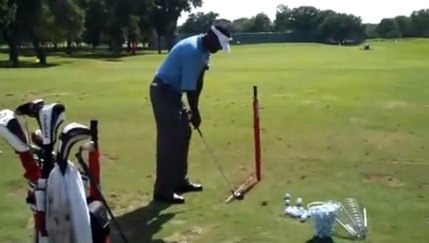 At Pro Tour Golf College we believe that golfing ability is a product of your environment (nurture) and not a product of some ‘mystical talent gene.’ Just in case you were wondering... When I played golf on the pro tour I never achieved the level of success I desired, and as a result I was motivated to find out what I needed to do to improve my skills more effectively and share that information with my students. I have spent a great deal of my adult life studying the most effective methods and strategies that lead to better and more consistent results. When I competed in golf tournaments I was under the mistaken impression (Like many of my generation) that mindlessly hitting lots of golf balls was the answer to better performances. So I practiced long hours and although I improved a little, I never got close to realizing the level of my aspirations.  For more than twenty years I have been on a quest to understand the underlying principles that drive expert performance on the golf course and beyond. In the early 1990’s my thirst for knowledge and understanding led me to a paper written by Professor Karl Anders Ericsson of Florida State University that helped to explain the many questions I had about how to achieve superior performances on the golf course. His landmark paper; “The Role of Deliberate Practice in the Acquisition of Expert Performance” gave me a new perspective on what high achieving men and women were doing to produce outstanding results. (Download and read this paper here)
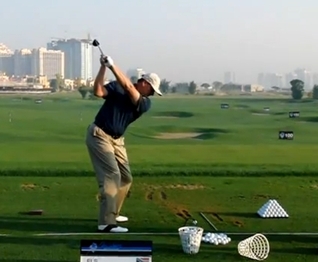 Professor Ericsson and his colleagues studied experts in a wide range of domains, including golf, writing, chess, stock picking and surgery. They assembled all the information they could on why high achieving men and women were essentially better than average performers. Their findings led them to identifying a practice process that these men and women were employing to generate long-term improvement that Professor Ericsson and his colleagues call Deliberate Practice. Deliberate Practice is a unique approach to practicing your skills with the clear and unmistakable goal of improving your performance first and foremost (as opposed to just hitting balls). The key distinction with deliberate practice over normal practice is that you consciously manage your practice effort towards the goal of continuous improvement. It consists of high repetition and an unnerving and relentless focus on improving your weak skills, which requires you to constantly stretch yourself beyond your level of comfort and familiarity. As Professor Ericsson has been quoted as saying; “The journey to truly superior performance is neither for the faint of heart nor for the impatient. The development of genuine expertise requires struggle, sacrifice, and honest, often painful self-assessment.” An important part of the deliberate practice approach is for you to monitor your results consciously and consistently, then correct or adjust - ideally with feedback from a competent and experienced coach. The feedback part of deliberate practice is extremely important as one of the main responsibilities for the coach/mentor is to teach you how to become more self-reliant with your practice. This happens to be one of the main drivers in our training program at Pro Tour Golf College. The aim of deliberate practice over the long term is to both improve the skills you already possess and extend the range and reach of your newly developing skills. And one thing Professor Ericsson is very clear about; there are no shortcuts! He believes it will take you at least ten years of dedicated and deliberate golf practice or even longer to achieve a high level of expertise. At Pro Tour Golf College we have developed a deliberate practice golf model that is a framework that helps David and I to develop our students abilities. (See below) This framework will help you to build your mental model of the important elements that will shape the way you practice and play golf. 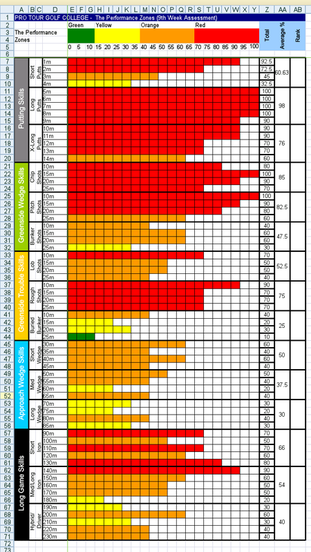 We Assess Our Students with the Help of the E.G.I.S Program We Assess Our Students with the Help of the E.G.I.S Program 1. Define Your Weakness: The starting point of the deliberate golf practice process is for you to define your weakest critical skills that limit the range and potential of your performances on the golf course. A small number of your golf skills are critical to improved performances and you need to isolate the weakest and work forwards from there. Of all the golf skills you use you will discover that that only four or five skills have the most significant effect on your golf performances on the golf course. Choose the weakest most important skill and move onto the design phase of improvement. 2. Design a Better Strategy: In the design phase you need to devise a golf skill improvement strategy that quickly and efficiently corrects the weak skill. This strategy should be underpinned by the need to keep the change process relatively simple as this will enable you to make consistent progress. The more complex you make the golf skill improvement strategy the longer it generally takes to improve the skill. This is where it is vitally important that you have the support of a competent professional golf instructor to help you design the very best strategy. 3. Devote the Time: Golf skill development requires a constant day to day dedication to a repetitive training process that facilitates the learning and remembering process. There is no shortcut to developing your golf skills to a very high level of expertise. Whilst you’re practicing your golf skills you need to monitor (be very aware) how your practice is coming along. If you ‘get lost’ in golf ball hitting you will not be effectively developing your powers of concentration the correct way. The whole idea of deliberate practice is to practice to generate a positive return on your investment of sweat equity. If you fail to practice deliberately you will fall under the law of diminishing returns where your effort will lead to a leveling out of your skill. The research shows that high performing individuals cannot sustain deliberate practice beyond four or five hours as it's a highly demanding mental activity. This practice process requires a great deal of effort to power your focus and concentration over that many hours successfully. Regular mental breaks to assess how your practice is coming along is essential for you to find ways to continually improve your golf skills. “While I am practicing I am also trying to develop my powers of concentration. I never just walk up and hit the ball.” – Ben Hogan 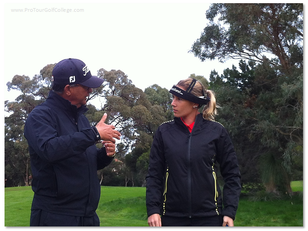 4. Discuss the Results: Expert feedback is essential to create momentum and also ensure that the work you’re performing is of the highest possible standard. Every serious performer in business, sports and the arts has a reliable feedback source in the form of a coach or mentor who constantly supervises their practice. Deliberate practice is built around the premise that to improve your skills you need someone outside of yourself who understands the learning process and your strategy for improvement to guide your effort carefully. At Pro Tour Golf College students are supervised for 25 to 30 hours per week (100-120 hours per month) which gives them a significant competitive advantage over golfers practicing on their own. Without constructive and sometimes painful, feedback from a coach it will be virtually impossible for you to make the continuous progress you’re striving for with your game. Your coach should be helping you to develop your mental model of the success process in golf for you, and also be guiding you towards your next step in the performance improvement process. So there you have it. This gives you an idea of how we use the deliberate practice framework at Pro Tour Golf College to guide the progress of our students towards their goals. Practicing deliberately is by no means easy to do-particularly on your own, but by studying the principles of deliberate practice and introducing them into your golf practice each day you will give yourself your best chance of generating continuous improvement of your golfing skills for a long time to come. Lawrie Montague and David Milne - Pro Tour Golf College The Professional Golf Tour Training College for Serious Amateurs Comments are closed.
|
Archives
June 2019
|
||||||
Proudly Supported By
Copyright © 2011 - 2018 Pro Tour Golf College
Website Managed By Golf Performance Media
All Rights Reserved
Website Managed By Golf Performance Media
All Rights Reserved


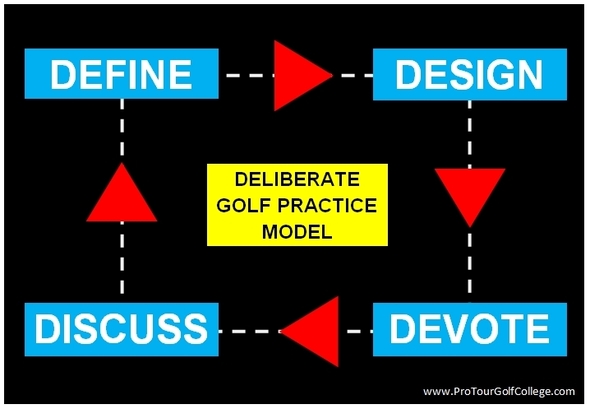

 RSS Feed
RSS Feed



